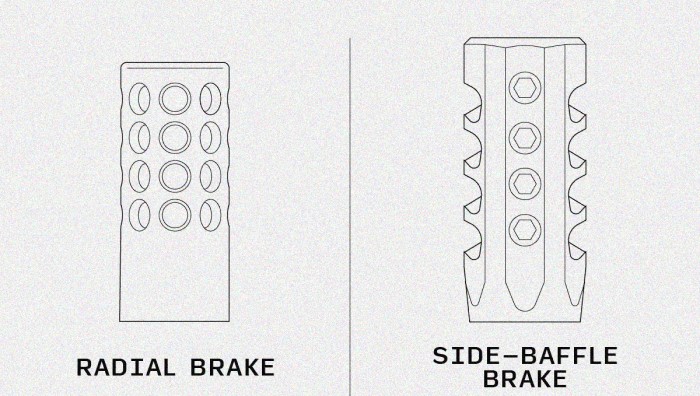A muzzle brake is a mechanical device that is attached to the barrel of a firearm or cannon to redirect propellant gases and muzzle blast in order to counter recoil and unwanted muzzle rise.
There are a few different types of muzzle brakes available on the market, but most work by channeling the gases exiting the barrel through a series of passages or ports. These ports can be oriented in different ways to achieve different results, but they all work towards redirecting some of that gas away from the direction of rearward travel. Some muzzle brakes also feature escape ports near the muzzle end of the firearm which help to reduce noise and blast concussion.
Most muzzle brakes will offer recoil reduction, but it’s important to keep in mind that they are not a cure-all for recoil issues. Muzzle brakes can also increase noise levels, making them unsuitable for use in stealthy operations. Additionally, they create hazardous conditions for bystanders, as the redirected gases can be very hot and contain debris.
So, while muzzle brakes can be a useful tool for reducing recoil, they are not without drawbacks. It’s important to weigh the pros and cons before deciding if a muzzle brake is right for you.

